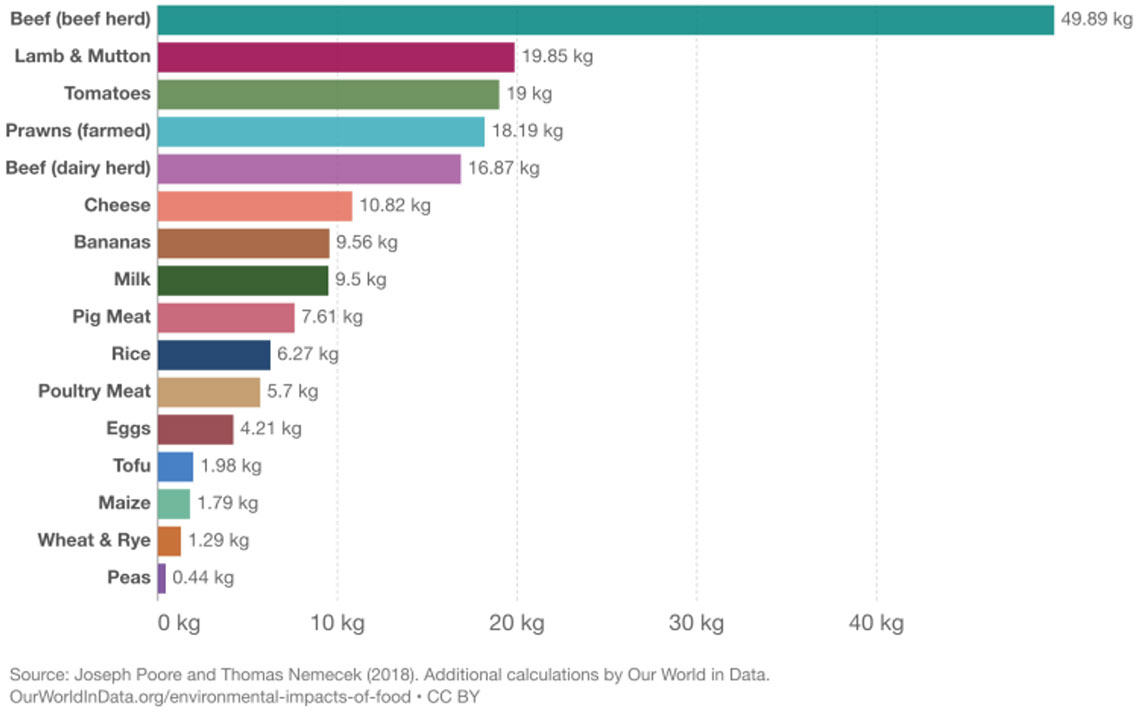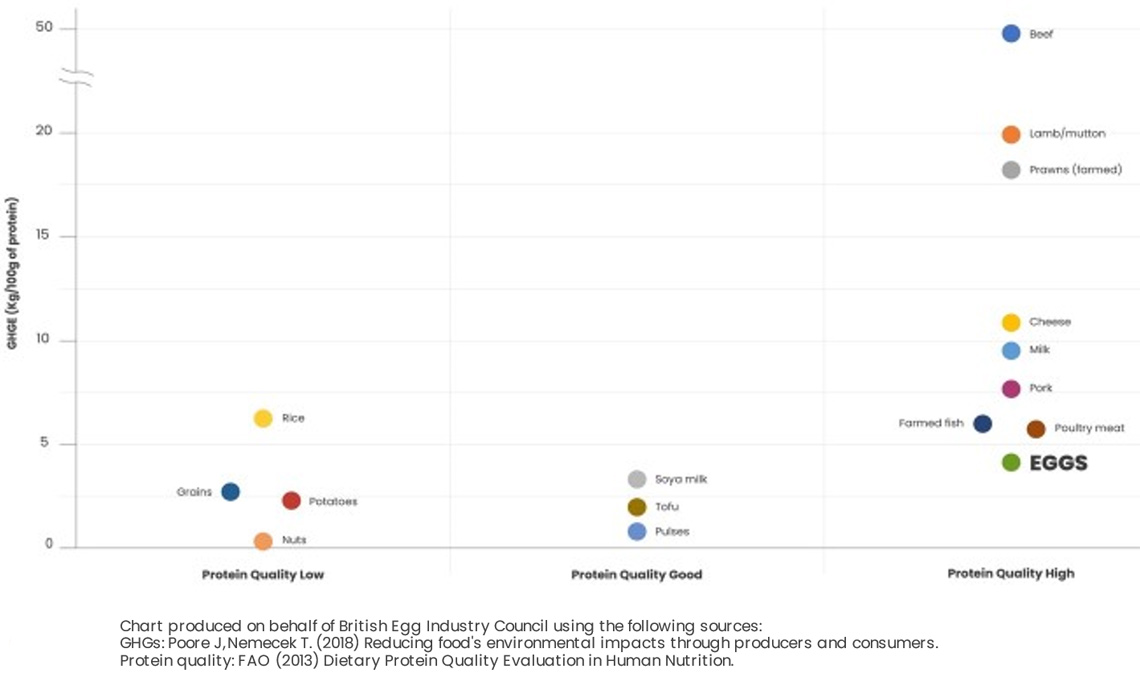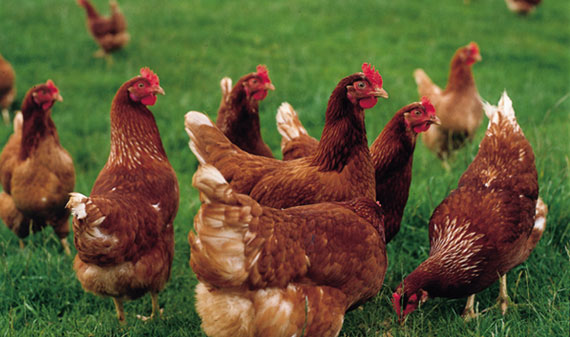For people wanting to eat more sustainably, eggs have the lowest environmental impact of any animal protein so are a great choice to help transition to a plant-rich diet without sacrificing the nutritional benefits of high quality protein.
A 2023 report from independent researcher and public health nutritionist Dr Pam Mason showed eggs to have a lower impact on carbon, land and water use than other animal foods – particularly red meat – and a similar impact to that of some plant-based foods such as beans and lentils.
Eggs also benefit from being quick to cook, requiring minimal energy consumption – a plus for affordability as well as sustainability.
As a natural food with low environmental impact and containing many crucial nutrients which can be hard to obtain from a vegan diet, eggs are an ideal alternative to red meat and to ultra-processed vegan alternatives in a sustainable diet.
Independent data shows that out of the animal protein sources listed, eggs scored the lowest for greenhouse gas emissions per 100g protein.
Greenhouse gas emissions per 100 grams of protein.
Balancing nutrition and sustainability
Eggs are one of the most naturally nutrient-dense foods available. They contain the highest quality protein, as well as important vitamins and minerals, many of which can be hard to obtain from a plant-based diet.
Eggs are one of the few ‘complete proteins’ as they contain all nine essential amino acids - the building blocks of proteins. Humans cannot manufacture the nine essential amino acids - they have to be provided from the diet. Amino acids are particularly significant for young and old people.
Eggs are naturally rich in vitamin D, B2 (riboflavin), vitamin B12, iodine and selenium, all of which can be difficult to obtain from plant foods. Eggs also contain several other essential dietary vitamins and minerals, including omega-3 fatty acids.
Combining protein quality and greenhouse gases
Egg industry progress
The egg industry is continuing to improve the sustainability of egg production.
The average age of laying hen flocks has increased in the last decade from 72 weeks to 80 weeks, resulting in an estimated 2.5% reduction in carbon footprint per kg eggs. The target is to increase flock life to 100 weeks of age, with an estimated 8% reduction in carbon footprint per kilogram of eggs.
In the UK, 67% of eggs are now free range or organic. Free range units have grown in size and efficiency in recent years with benefits to sustainability from lower feed intake and more energy-efficient transport and packaging.
In addition, 1 million trees are estimated to have been planted on UK free range farms – equating to a carbon reduction of 10,000 tonnes of CO2 equivalent per annum over a 20-year cycle.
Independent data evaluating both the quality of protein foods and their greenhouse gas emissions (GHGs) per 100g protein shows that eggs have the lowest GHGs among the highest quality protein.


